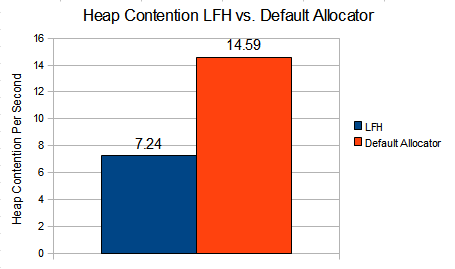The interface of shared_ptr is carefully designed such that it has the syntax of a raw C pointer. So naturally, shared_ptr is comparable against NULL.
shared_ptr<SomeClass> sc;
//...
if(sc != NULL) { } // is it not NULL
if(sc == NULL) { } // is it NULL
But NULL is really an abused integer. How would you implement such a comparison?
This is C++. There is always devil in the details.
Obvious, but wrong solution
Attempt #1:
An obvious solution is to implement an operator== and operator != to compare against a pointer type of its type parameter.
template<typename T>
class shared_ptr
{ //...
bool operator==(T *p) const // compare against T* and check for equality
{
if(px_ == p)
return true;
return false;
}
bool operator!=(T *p) const { /*inverse of == */}
T* px_;
}
Why it fails
Yes, this will correctly support the NULL comparison listed above, but there are four other ways in C/C++ to check a pointer for NULL.
The comparison operator fails if the comparison order is reversed, or if implicit boolean conversion is used.
shared_ptr<SomeClass> sc;
//...
if(NULL != sc) {} // no such conversion supported
if(NULL == sc) {}
if(sc) {} // fails the implicit conversion to bool
if(!sc) {}
And it really doesn’t make sense to compare a shared_ptr with a raw pointer.
shared_ptr<SomeClass> sc;
SomeClass*rp;
//...
if(rp != sc) {} // doesn't make sense
if(rp == sc) {} // doesn't make sense
So operator== and operator!= provide a poor coverage to this problem. We need something better.
More sophisticated almost solutions
Attempt #2
So what about operator bool? Maybe we can convert the shared_ptr to a boolean type by return false if it is NULL, and return true otherwise.
template<typename T>
class shared_ptr
{ //...
operator bool() const // conversion to bool
{
if(NULL == px_)
return false; // implicit conversion to false if NULL
return true; // implicit conversion to true otherwise
}
T* px_;
}
Why it fails
Although this solution supports all six ways of NULL comparison mentioned before, it comes with a bit of baggage.
Thanks to an implicit bool-to-integer promotion, you can now do stuff like this.
shared_ptr<SomeClass> sc;
float f = sc; // this actually compiles
int i = sc; // do not want!
Attempt #3
How about operator T*, where shared_ptr implicitly converts to a pointer type of its type parameter?
template<typename T>
class shared_ptr
{ //...
operator T*() const // conversion to T*
{
return px_;
}
T* px_;
}
Why it fails
This solves the problem of implicit integer promotion, but opens a major hole. Now your shared_ptr is actually “leaky” and deletable. This behavior allows shared_ptr to be easily abused and misused.
shared_ptr<SomeClass> sp;
SomeClass *rp;
rp = sp; // uh oh, reference count leak
delete sp; // OMG! heap corruption
The Boost Solution
Here’s the solution chosen by boost library (similar solution also observed in VC10).
template<typename T>
class shared_ptr
{ //...
typedef T * shared_ptr<T>::*unspecified_bool_type;
operator unspecified_bool_type() const // never throws
{
return px_ == 0? 0: &shared_ptr<T>::px_;
}
T* px_;
}
This solution is very clever. It implicitly converts the shared_ptr into “a pointer to member variable”. Based on the NULLness of the shared_ptr, it will either return 0 or a pointer to member variable of type T*.
With this implementation, shared_ptr manages to support the six ways of checking for NULL, avoids the dangerous comparisons, and has no integer promotion side effects.
Is the boost solution perfect? Of course not. The code is confusing, and you can still do some crazy stuff.
shared_ptr<SomeClass> sp(new SomeClass);
// Grab the shared_ptr's "pointer to its member variable"
shared_ptr<SomeClass>::unspecified_bool_type ubt = sp;
// Extract the shared_ptr's inner pointer member in the most obscure way
SomeClass *innerPointer = sp.*ubt;
Final Thoughts
For such an innocent comparison, the depth of the solution is astonishing. It is amazing to see how far C++ library writers are willing to go to work around the nastiness of the language.
After figuring this out, I later learned that this technique is called the Safe Bool Idiom. (As usual, google is useless if you don’t know what you are looking for).
C++0x will address this mess with the explicit conversion operator.






